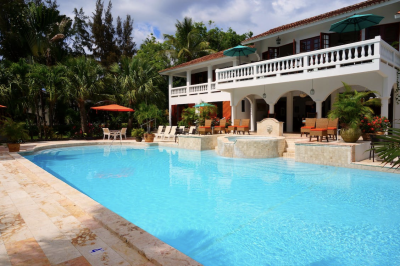A functioning swimming pool after pool repair is more than just a source of entertainment; it’s a hub of family activity, relaxation, and exercise. Essential for the health and safety of pool users, a well-maintained pool requires several key components working seamlessly together. These include the pool pump, filter, heater, and an effective synchronization and automation system. Maintenance and safety measures also play crucial roles in ensuring the longevity and usability of the pool. Understanding the key components, importance of pool repair and their operation not only enhances the pool’s functionality but also promotes a safer, more enjoyable swimming environment for the family. Now let’s talk about the key components of a pool:
1. Pool Pump: The pool pump is the heart of the pool system. It circulates water through the pool’s filtration system, removing debris and maintaining water clarity. It’s important to choose a pump that matches the size and volume of your pool for optimal efficiency. After pool pump repair, a well-functioning pump is quiet, energy-efficient, and capable of circulating the entire volume of pool water within a specific timeframe, typically 8-12 hours. When choosing a pool pump, consider factors like energy efficiency, noise levels, and ease of maintenance. Regular inspection, pump repair and cleaning of the pump basket help prolong the pump’s lifespan and maintain its efficiency.
2. Pool Filter: The pool filter works in conjunction with the pump, filtering out debris, dirt, and other contaminants to keep the water clean and clear. There are three types of pool filters: sand, cartridge, and diatomaceous earth (DE), each with their own benefits, pump filter repair and maintenance requirements. Sand filters are economical and easy to maintain, cartridge filters provide more thorough filtration, and DE filters offer the highest level of filtration. Regular backwashing with pump filter repair (for sand and DE filters) or cartridge cleaning is necessary to keep the filter operating efficiently.
3. Pool Heater: A pool heater repair extends the swimming season by maintaining a comfortable water temperature. It can be powered by natural gas, propane, electricity, or solar energy. Choosing the right heater depends on the pool size, local climate, desired temperature, and energy costs. Regular maintenance, and pool heater repair of the pool heater includes periodic inspections for any visible damage, professional servicing for internal components, and ensuring proper ventilation for gas or propane heaters. For a comprehensive selection of pool heater and chiller combinations, you can visit Outdoor Direct for more information.
Pool Equipment Synchronization and Automation
In the digital age, swimming pool equipment synchronization and automation have become increasingly popular. These technologies bring convenience, energy efficiency, and ease of management to your pool operations. Synchronization involves ensuring all your pool components work harmoniously together. This means your pump, heater, filter, and even cleaning systems are set to operate at optimal times, reducing energy consumption and increasing the lifespan of your equipment. Automation goes a step further, allowing you to control your pool’s systems remotely. For example, automated control systems can be programmed to turn the pump on and off at set times, regulate the heater to maintain a consistent pool temperature, and even manage your pool lights. Some systems allow control via smartphone apps, meaning you can adjust settings from anywhere.
Moreover, automated pool cleaning systems can be scheduled to clean your pool at off-peak times, keeping your pool ready for use without the inconvenience of manual cleaning.
In addition to convenience, automation and synchronization can result in significant energy savings. By ensuring your equipment runs only, when necessary, you reduce unnecessary energy consumption, saving on utility costs. Investing in pool equipment synchronization and automation can significantly enhance your swimming pool experience, bringing you convenience, savings, and a well-maintained pool at your fingertips.
Pool Maintenance and Safety Tips
Maintaining pool equipment – including the pump, filter, and heater – is essential for the longevity of these components and overall pool health. Regular maintenance not only improves performance but also aids in safety, ensuring a pleasurable swimming experience for all.
For the pool pump, regular cleaning of the pump basket is crucial to prevent blockages and maintain efficient water circulation. Inspect the pump and its seals regularly for any leaks or damage. It’s essential to turn off the pump before cleaning to avoid accidents.
The pool filter, whether sand, cartridge, or DE, requires cleaning or backwashing to function optimally. For sand and DE filters, backwashing when the pressure rises 8-10 psi above normal is a good rule of thumb. Cartridge filters need cleaning a few times per season depending on use, which involves removing the cartridge and rinsing it thoroughly.
The pool heater requires annual professional servicing for optimal performance. Ensure there’s proper ventilation for gas or propane heaters to prevent the build-up of dangerous gases. Regularly inspect the heater for any visible damage or wear and tear.
On the safety front, all pool equipment should be correctly grounded to avoid electrical hazards. Keep the equipment area clean and clear of debris or chemicals. Always turn off the equipment before any maintenance, and never allow children to operate pool equipment. For any complex issues or services, always seek the help of a professional.
Proper pool installation, maintenance, and safety measures are key to optimal pool performance. Installation involves correctly setting up integral components like the pool pump, filter, and heater, which need to be selected based on pool size and requirements. Regular maintenance includes cleaning these components, checking for damage, and servicing when necessary. Safety measures are paramount, such as ensuring all electrical equipment is properly grounded and protected from water ingress. Regular water testing to maintain chemical balance is crucial for equipment longevity and swimmer comfort. Ensure the pristine condition of your swimming oasis with accurate and timely pool water testing, guaranteeing a refreshing and safe aquatic experience for everyone. With the right installation, diligent maintenance, and adherence to safety protocols, your pool can provide optimal performance and enjoyment.












